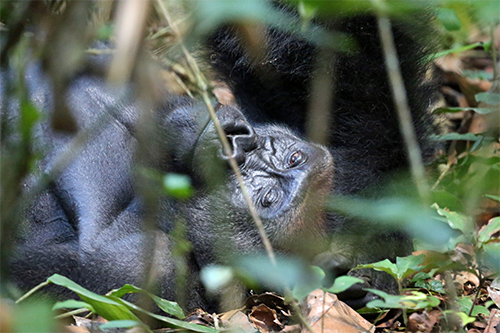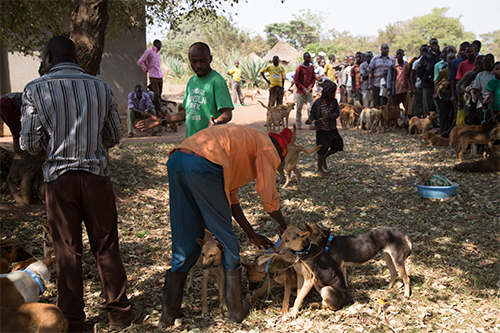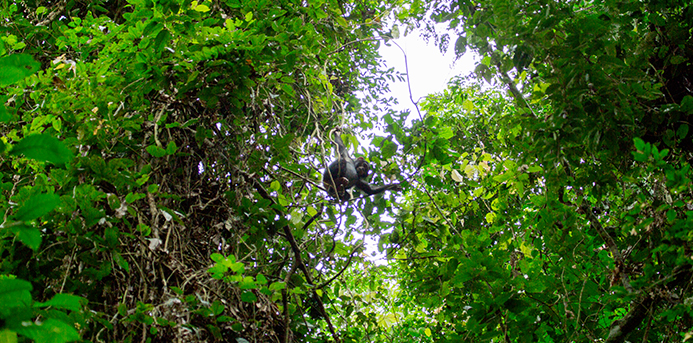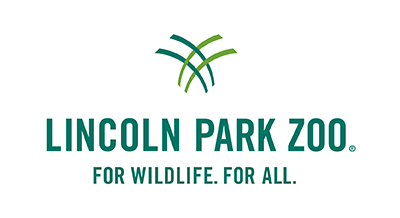From the remote jungles of the Goualougo Triangle in the Republic of Congo studying chimpanzees and gorillas to the breathtaking plains of Serengeti National Park in Tanzania, Lincoln Park Zoo scientists are working to understand how to best mitigate human-wildlife conflict in order to save wildlife.
It is no secret that the planet is urbanizing, which requires new buildings, roads, resources and more. According to the Center for Biological Diversity, there are more than 7 billion people on the planet, and we’re adding 227,000 more every day. As a result, species are disappearing 1,000 to 10,000 times faster than the natural rate.
Recently, Lincoln Park Zoo shared its new vision: inspire communities to create environments where wildlife will thrive in our urbanizing world. While some individuals may think developing countries are at less risk for urbanization, this misconception can be dangerous for our wildlife counterparts. Urbanization is relative — while Chicago may build dozens of high rises a year with minimal impact on wildlife, one road through a pristine Congolese jungle can turn an ecosystem on its head.

The Goualougo Triangle in the Republic of Congo is the only place on Earth where chimpanzees and western lowland gorillas — endangered and critically endangered, respectively, according to the International Union for the Conservation of Nature — share habitat. Although historically their populations were relatively large, the zoo’s work in collaboration with the Goualougo Triangle Ape Project suggests human encroachment and habitat alteration has enabled several threats to converge in this area for the first time including commercial logging, emergent diseases and bush meat hunting, which impact the survival of our closest relatives. Through the zoo’s work there, researchers are partnering with logging companies to develop ape-friendly logging practices to reduce those threats.
While urbanization in some areas may be inevitable, there are positive conservation actions individuals can make on behalf of great apes including purchasing Forest Stewardship Council or FSC-certified wood. FSC certification ensures that products come from responsibly managed forests that provide environmental, social and economic benefits — just look for the logo on any wood or paper purchases.
Lincoln Park Zoo understands that human impacts may be the root of several environmental impacts, but they can also contribute to the solution. Conservation often lies in the hands of the community. In the Republic of Congo, zoo researchers have trained ex-bush meat hunters to help track great apes to save the species. Heading east to Tanzania, the zoo has successfully worked with villagers through the Serengeti Health Initiative, vaccinating more than one million domestic dogs against rabies and canine distemper, helping reduce the spread of disease to African wild dog and lion populations and villagers themselves.

Now, the zoo looks to build upon this success and continue to help the Serengeti National Park ecosystem as a whole. Currently, the zoo is training local community members in digital data collection and evaluating two areas: the impacts of park management interventions and people’s attitudes toward the park. This information is especially pertinent given one of the biggest conservation threats in the ecosystem is human-owned livestock and the competition with native wildlife for grazing land.
As the world continues to change, so do ecosystems and all of us that inhabit them. Lincoln Park Zoo is dedicated to ensuring the future of species near and far. Visit lpzoo.org to learn more about the zoo and its conservation programs throughout Africa and beyond.
Donate to Lincoln Park Zoo now!
[takeaction targettype=”org” targetid=”lincoln-park-zoological-society”]
Make It Better is a proud media sponsor of Lincoln Park Zoo’s 40th Annual Zoo Ball, The Mane Event, on July 14. Learn more and buy tickets here.
More from Make It Better:


